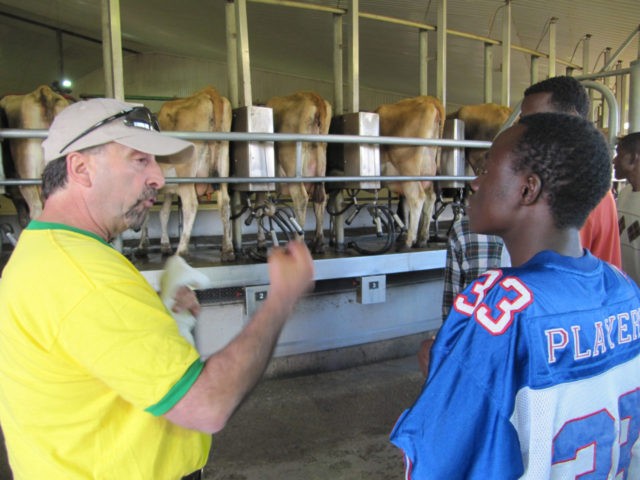President Donald Trump is restarting the nation’s expensive policy of transplanting foreign refugees into towns and cities around the nation, following a 12o-day pause for the development of new security provisions.
Trump’s decision comes after he reduced the annual inflow of refugees from more than 100,000 down to 45,000. Conservative hoped for a deeper reform and a greater focus on aid to refugees in their homelands, but the cut is popular, and it caused an outcry from progressives, the taxpayer-funded groups that care for the refugees, and from the meatpacking and dairy industries which employ many of the new and usually unskilled refugees.
The restart decision comes after three security officials provided their recommendations to Trump.
The new security provisions include an intensive review of refugees from 11 unnamed nations, according to a statement from the Department of Homeland Security. The statement said that officials:
concluded that additional in-depth review is needed with respect to refugees from 11 countries previously identified as posing a higher risk to the United States. Consequently, admissions for applicants from those 11 high-risk countries will move forward on a case-by-case basis during an additional 90-day review period, consistent with our national security interests. As DHS, State and DNI complete individual country reviews, they may resume a standard admissions process for applicants from those countries.
Officials will also begin security reviews of the chain-migrants who are being invited into the United States by approved refugees. The agency recommendations said:
Based on an assessment of current systems checks, as well as requirements for uniformity identified by Section 5, we will direct our staffs to work jointly to implement adequate screening mechanisms for following-to-join refugees that are similar to the processes employed for principal refugees, in order to ensure the security and welfare of the United States. We will resume admission of following-to-join refugees once those enhancements have been implemented.
In a late afternoon phone call with reporters, officials declined to explain the new security procedures. For example, one official said the checks on immigrants from the 11 countries would be ”using a totality of the circumstances regarding the applicant’s overall credibility.”
Another official insisted the agencies would not “discriminate” when he was asked to explain what characteristics would cause officials to exclude particular refugees. The official declined to describe what characteristics would cause officials to accept some refugees and to reject others.
DHS acting chief Elaine Duke offered a similarly vague explanation, saying:
The security of the American people is this administration’s highest priority, and these improved vetting measures are essential for American security. These new, standardized screening measures provide an opportunity for the United States to welcome those in need into our country, while ensuring a safer, more secure homeland.
This evasiveness may be forced by the government lawyers who protecting Trump’s policies from progressive judges, several of whom now insist they have the power to admit immigrants and refugees despite opposition from the elected president.
Agency opposition to Trump’s policies has also been strong. In September, the federal officials who run the nation’s immigration agencies claimed that they are clearing $630 million a year in extra taxes for the federal government by importing the low-skill refugees for jobs that would otherwise be done by sidelined Americans or be automated by American-built technology.
That study was slammed by critics for hiding the multi-billion-dollar costs of recent immigrants, many of whom are uneducated, unskilled and unlikely to assimilate into the United States’s culture.

COMMENTS
Please let us know if you're having issues with commenting.